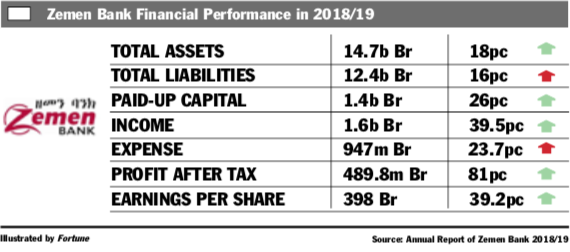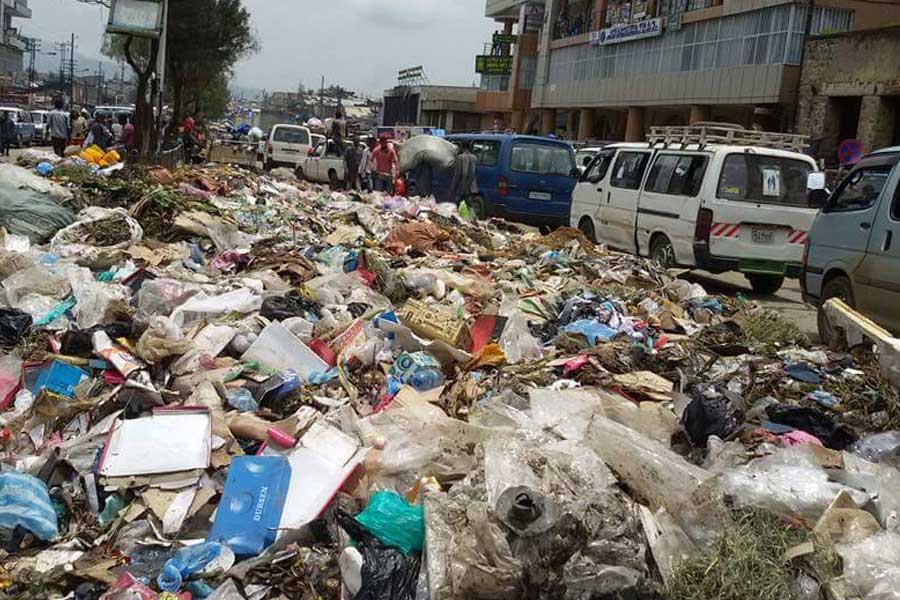
Letter To Editor | Feb 29,2020
Aug 1 , 2020
By Christian Tesfaye
In the end, it was anti-climatic. Many of us had assumed that the filling of the reservoir of the Grand Ethiopian Renaissance Dam (GERD) was going to start with great fanfare, plastered across all of our TV screens with high officials attending the event and making speeches.
It happened differently. There were reports based on satellite images that the GERD was already holding water, but official confirmation that Ethiopia had indeed started to fill the Dam before the end of the negotiations with Egypt and Sudan did not come. But a short while later, we were told that there had been more than satisfactory rain this year and that first phase filling had already been finalised. Almost five billion cubic metres of water was impounded, instrumental to beginning early generation.
The sky did not fall. Egypt did not launch a military attack on Ethiopia. Middle Eastern countries, allies of Egypt on this issue, did not cut diplomatic ties. The United States, despite reports that it was mulling cutting aid, did not take any actions against Ethiopia. No ambassadors were recalled; no scuffles of any kind. Talks between the three countries have even continued.
It almost seems like it was much ado about nothing all along.
But let not the muted response by the countries that were against the filling of the Dam without a negotiation fool us. This was no easy feat. True, there has not been a lack of praise for Ethiopia’s insistence to construct and fill the Dam despite the remonstrations of powerful countries. Still, the contribution this could have to the national myth has not been expounded on satisfactorily.
There is no nation-building myth as critical as the one centred around an underdog rising against the odds to deliver a blow to a more powerful foe. The appeal of these stories is that they focus on non-material values.
From the 13 colonies of North America against Great Britain to 19th century Ethiopia fighting Italy, what marks the distinction between the underdog and the sure bet is the difference in material means – military and economic strength.
When the underdog becomes the victor then, it is usually attributed to a greater sense of purpose, determination and, most of all, unity – not the accumulation of resources at its disposal. This is even if the sure bet was probably facing domestic problems, or too stretched strategically with operations elsewhere, to fight effectively at the time.
The event becomes a sign that the inhabitants of that country have a shared destiny. And they will then begin to act and behave as if they do have a shared destiny; it is them against the world. It becomes a self-fulfilling destiny. Few will speak of, or be interested in, the aberration that led to the defeat of a foe that was far more powerful.
The constriction and the filling of the Dam is a similar story. It was anticlimactic, mainly because development projects do not carry the same dramatic punch military battles do. Concrete, reinforcement bars and megawatts of power are no match for battlegrounds in the popular imagination.
But it was an unprecedented underdog victory nonetheless, one on which the character and identity of a nation can be built. It is a story of determination and strength of character against mightier foes. In the end, the country held its ground and insisted that, come what may, this mass of concrete and reinforcement steel will be built and impounded.
We won! There is not much to feel great about when the history of this country is taken as a whole, but this is one of the few times where there is a reason for celebration - a deserved pat on the back. It was, more importantly, a generational feat, undertaken boldly and to the benefit of the country's development. If there was an event for national myth-making the country desperately needed, it was this one.
PUBLISHED ON
Aug 01,2020 [ VOL
21 , NO
1057]


Letter To Editor | Feb 29,2020

Fortune News | Feb 01,2020

Fortune News | Oct 24,2020

Radar | Mar 12,2022

View From Arada | Apr 30,2021

Commentaries | Sep 11,2020

Agenda | Sep 30,2023

Fortune News | Nov 27,2018

Viewpoints | Jun 27,2020

Fortune News | Feb 16,2019

My Opinion | 131970 Views | Aug 14,2021

My Opinion | 128359 Views | Aug 21,2021

My Opinion | 126296 Views | Sep 10,2021

My Opinion | 123912 Views | Aug 07,2021

Dec 22 , 2024 . By TIZITA SHEWAFERAW
Charged with transforming colossal state-owned enterprises into modern and competitiv...

Aug 18 , 2024 . By AKSAH ITALO
Although predictable Yonas Zerihun's job in the ride-hailing service is not immune to...

Jul 28 , 2024 . By TIZITA SHEWAFERAW
Unhabitual, perhaps too many, Samuel Gebreyohannes, 38, used to occasionally enjoy a couple of beers at breakfast. However, he recently swit...

Jul 13 , 2024 . By AKSAH ITALO
Investors who rely on tractors, trucks, and field vehicles for commuting, transporting commodities, and f...

Jul 5 , 2025
Six years ago, Ethiopia was the darling of international liberal commentators. A year...

Jun 28 , 2025
Meseret Damtie, the assertive auditor general, has never been shy about naming names...

Jun 21 , 2025
A well-worn adage says, “Budget is not destiny, but it is direction.” Examining t...

Jun 14 , 2025
Yet again, the Horn of Africa is bracing for trouble. A region already frayed by wars...

Jul 6 , 2025 . By BEZAWIT HULUAGER
The federal legislature gave Prime Minister Abiy Ahmed (PhD) what he wanted: a 1.9 tr...

Jul 6 , 2025 . By YITBAREK GETACHEW
In a city rising skyward at breakneck speed, a reckoning has arrived. Authorities in...

Jul 6 , 2025 . By NAHOM AYELE
A landmark directive from the Ministry of Finance signals a paradigm shift in the cou...

Jul 6 , 2025 . By NAHOM AYELE
Awash Bank has announced plans to establish a dedicated investment banking subsidiary...